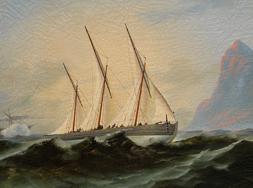
|
|
|
|
Spanish Artist
(monogram FR, ca. 1880) |

|
|
|
|
Spanish Artist
(monogram FR, ca. 1880) |
Presented by the FineArtEmporium in Hamburg.
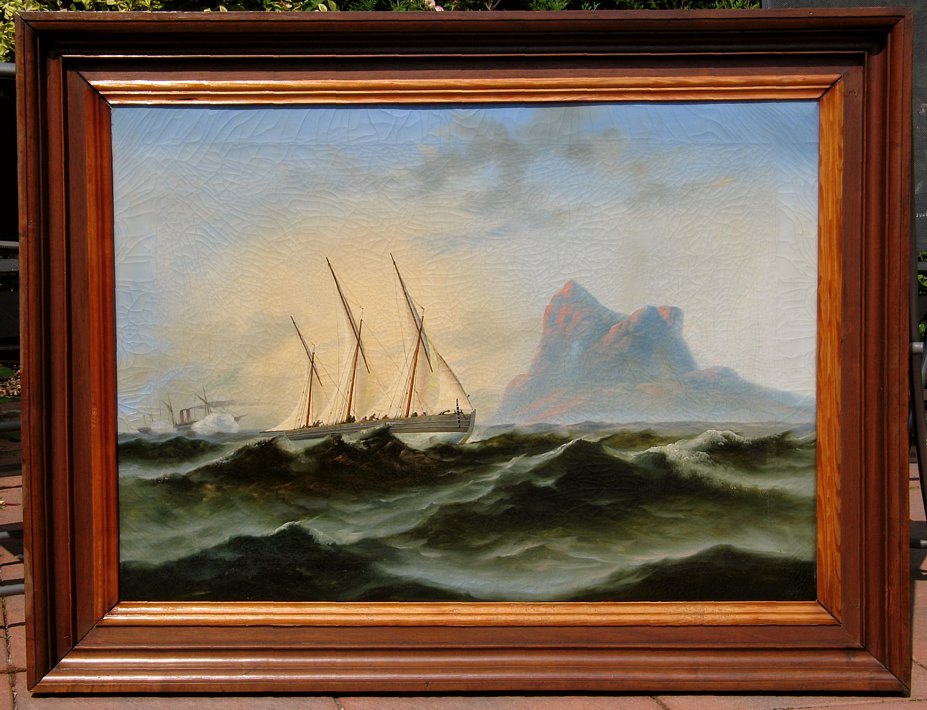
|
|
Spanish Artist (mongram
FR, ca. 1880) - An
Algerian Pirate Lugger is chased off Gibraltar - the lugger
is shown sailing at maximum speed -
Photo Copyright is with the Fineartemporium - Go back to our For Sale Category |
These photos have been taken at bright sunshine, depending on the conditions where the painting is hanging indoor it might appear darker on the wall.
Following are shown some more photos of the painting:
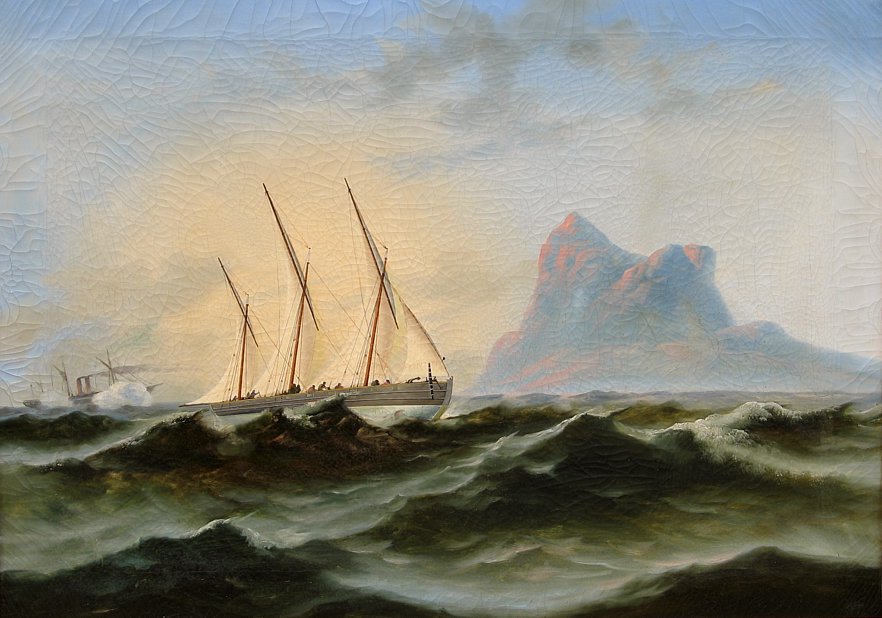 *
*
and a detail photo:
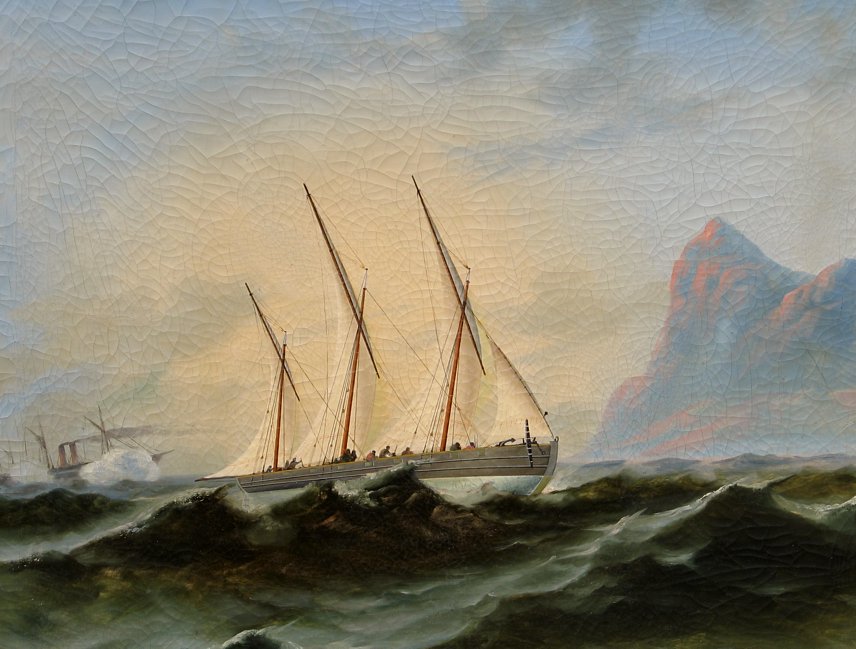
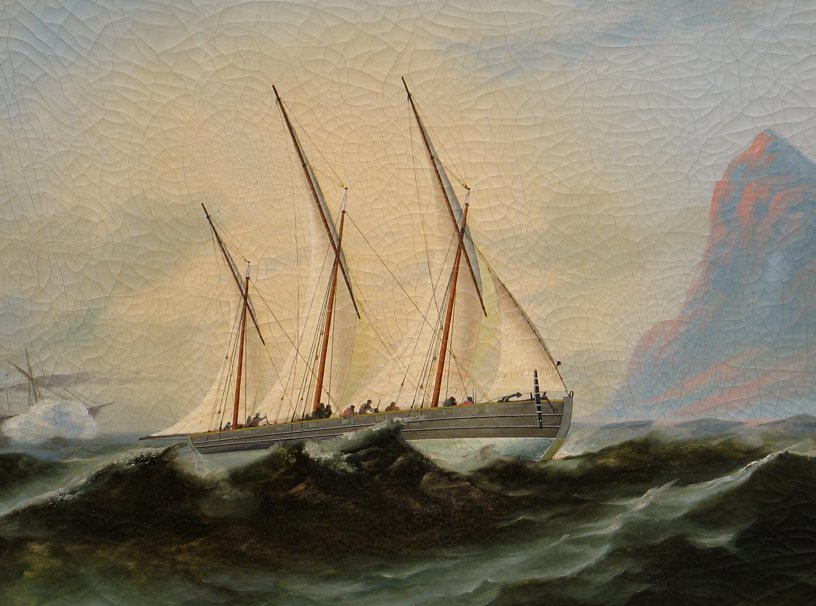
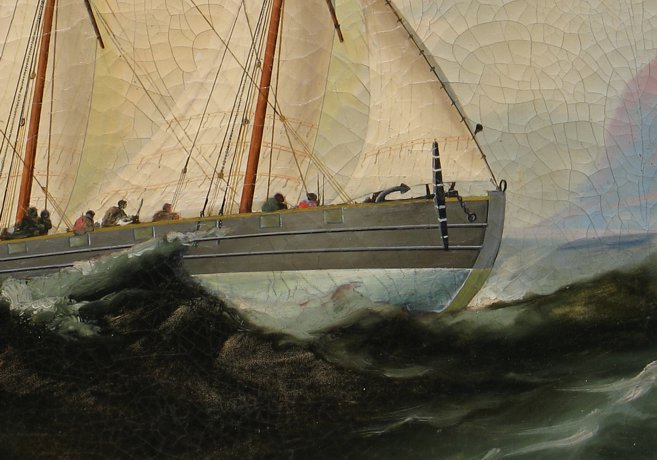 *
*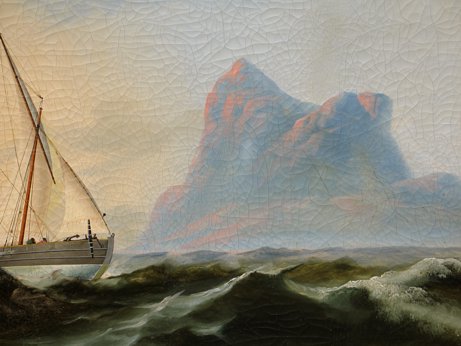
***********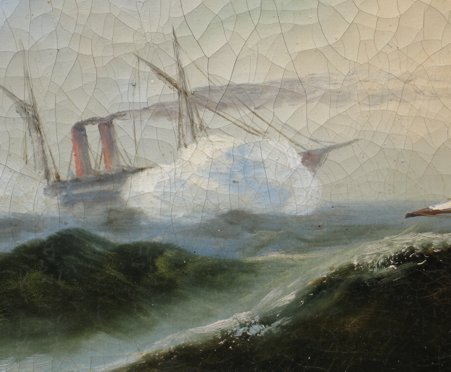 ***
***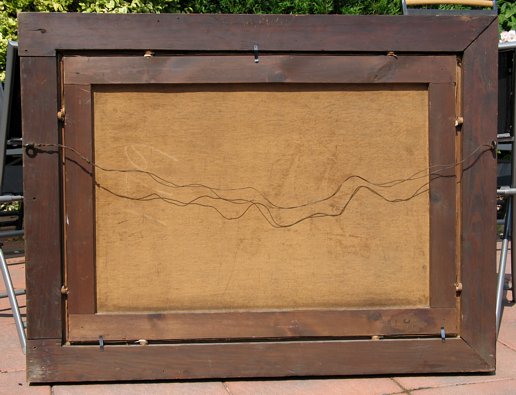

The unusual and special feature of this large oilpainting is the
subject: Less than one of 3000 period Marine Paintings (done pre-1900)
show a Pirate Ship as the main subject. Algerian Pirates, such as Hassan
Pascha was frightening the crews of merchant vessels in the 19th Century. Also
the background (Gibraltar) is shown comparable rarely on marine paintings (although
more often than pirate ships). We have never seen before this unique combination
of these both motifs like in this painting.
The Mediterranean Sea was often visited by American Traders
and Ships in the end of the 18th and in the entire 19th Century, as we know
from ship portraits of US Ships done in Southern France (eg. Marseilles) and
Italy (eg. Naples). Most of the vessels passing Gibraltar were of cause British,
followed by ships from other European countries, such as Germany, The Netherlands
etc. Especially in British (Greenwich Maritime Mus.) and American (Peabody Museum
Salem) collections we find a number of paintings with Gibraltar background.
Such large three-masted Pirate Luggers - as shown here - were dangerous enemies with up to 300 man onboard and they did not only steal the cargo and merchant ships itself, but also put the crew into North African Slavery (working for the local Pascha) or asked ransom money from the Shipping Companies or Admirality. Period paintings with pirate subjects are mainly known from Thomas Buttersworth (1768-1842), but such paintings command quite high prices. A large work like this with a pirate subject by Buttersworth would be in the region of 30.000 to 50.000 Pounds (US$ 57,000 to 95,000). There are a few other artists in the 19th Century who depicted pirates as well, but when it comes to this subject it always gets expensive. So because we are with this painting not aware of the identity of the artist who signed it with the monogram it offers an unique chance to purchase such a motif from the period for "little" money. Apart from the special subject it is of cause a nice and quite representative marine painting, with the ship depicted with many details, with the "romantic" partly blue-yellow sky which can only be produced by an artist with many layers of color and long working time and finally with the age craquelure everybody can notice immediately that this is a painting from the 19th Century and more than 120 years old. There is no contemporary marine painting which could produce this effect. The large and massive wooden frame - which is original to the painting - adds another appeal to the entire picture.
Please look to the photos, if you find the craquelure disturbing for your taste, please do not buy this painting. Most paintings from the 19th Century show some sort of age craquelure, sometimes more strong (such as in this case) and sometimes less. Several layers of new varnish has been applied on the surface of this painting and the paint is stable of cause. Please note that the best viewing distance for this painting is 8 to 10 feet and that you need a suitable space to hang it - this is not a painting for a small room - but good for a living room or office or onboard of a larger yacht / cruise ship.
